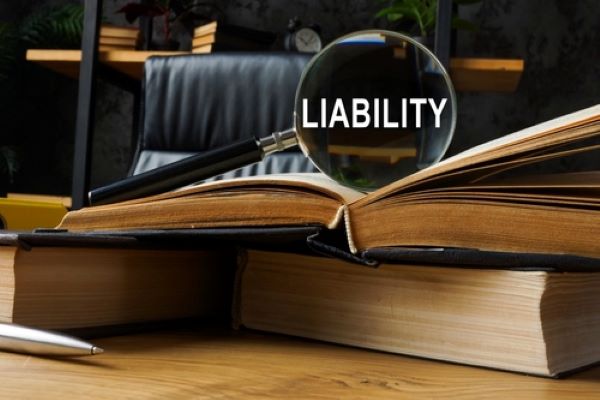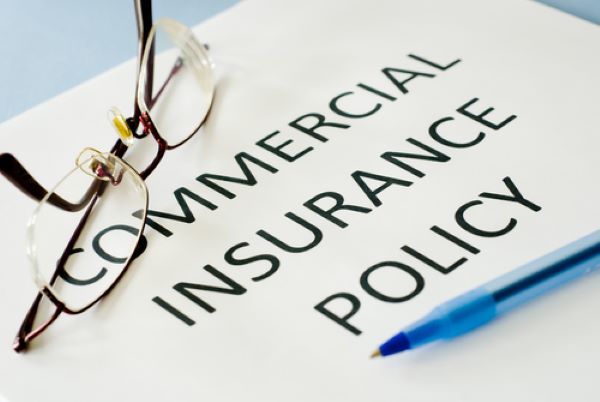 |
| By | November 15, 2024 |
Whether you run a small retail shop or a large enterprise, commercial insurance can protect you from unforeseen risks and liabilities. With many options available, choosing the right policy can feel overwhelming. Here’s an overview of the key factors to consider when selecting the best commercial insurance for your business. Common Types of Commercial Insurance Business insurance covers a wide range of policies, each designed to meet the specific needs of different industries. Understanding which types of coverage are most relevant to your industry will help you tailor your insurance plan for the best protection. The most common types include: General Liability Insurance Liability insurance is necessary for almost every business, as it covers legal costs if your business is sued for causing bodily injury or property damage to a third party. Retail stores and restaurants often benefit from this type of insurance due to high foot traffic and potential accidents. Worker’s Compensation Insurance Mandated in most states, this option provides wage replacement and medical benefits to employees injured on the job. It also shields employers from lawsuits filed by injured workers. This is especially important for construction companies and manufacturing plants, where workplace injuries are more common. Commercial Auto…

- Assess your business risks based on industry, services, and customers to choose the most relevant coverage.
- Select adequate coverage limits and consider bundling policies like a Business Owner’s Policy (BOP) to save costs and streamline protection for small and medium businesses.
- Treat insurance as a long-term investment by balancing premiums and deductibles, exploring discounts, and factoring coverage into your operational costs.
Whether you run a small retail shop or a large enterprise, commercial insurance can protect you from unforeseen risks and liabilities. With many options available, choosing the right policy can feel overwhelming.
Here’s an overview of the key factors to consider when selecting the best commercial insurance for your business.
Common Types of Commercial Insurance
Business insurance covers a wide range of policies, each designed to meet the specific needs of different industries. Understanding which types of coverage are most relevant to your industry will help you tailor your insurance plan for the best protection.
The most common types include:
General Liability Insurance
Liability insurance is necessary for almost every business, as it covers legal costs if your business is sued for causing bodily injury or property damage to a third party. Retail stores and restaurants often benefit from this type of insurance due to high foot traffic and potential accidents.
Worker’s Compensation Insurance
Mandated in most states, this option provides wage replacement and medical benefits to employees injured on the job. It also shields employers from lawsuits filed by injured workers. This is especially important for construction companies and manufacturing plants, where workplace injuries are more common.
Commercial Auto Insurance
If your business owns and operates vehicles, commercial auto insurance covers damages or injuries resulting from vehicle accidents. This is one of the best options for logistics and delivery service providers with a large fleet.
Business Owner’s Policy (BOP)
This is a bundled insurance package that typically combines general liability insurance with property insurance. It’s a great choice for small to medium-sized businesses looking for comprehensive coverage in a cost-effective package. For example, retailers, small offices, and professional businesses can benefit from a BOP for its all-in-one convenience.
Commercial Property Insurance
This covers damages to your business’s physical assets, like buildings, equipment, inventory, and furniture, due to events such as fire, theft, or natural disasters. Warehouses and manufacturing facilities often prioritize this insurance to protect valuable equipment and inventory.
Product Insurance
If your business manufactures or sells products, product liability insurance protects against lawsuits related to injuries or damages caused by your products. Food producers, electronics manufacturers, and other product-based industries need this to shield against costly claims related to defective products.
Professional Liability Insurance (Errors & Omissions Insurance)
For service-based industries like law, medicine, or consulting, professional liability insurance covers legal claims stemming from errors, omissions, or negligence in providing services.
Cyber Insurance
With the rise of cyberattacks, this type of insurance is becoming a necessity. It covers expenses related to data breaches, including legal fees, notification costs, and credit monitoring for affected customers. E-commerce companies and tech firms heavily rely on this protection to manage data breaches and cyber threats.
Tips to Choose the Right Commercial Insurance
Your business may face a variety of risks based on your industry, locality, and other factors. The right coverage can make all the difference in recovering from a loss or lawsuit. Here are some key factors to guide you in selecting the best insurance plan for your business:
Potential Risks and Liabilities
Start by creating a risk profile for your business based on factors like the types of customers you serve, the products you sell, and the services you provide. You can also research other businesses in the same industry to gain insights into common risks. A restaurant, for example, might be concerned about general liability for slip-and-fall accidents, while a software development company could focus on cyber insurance. Once you identify potential risks, it’s easier to determine the specific coverage needed.
Coverage Limits
Coverage limits are the maximum amounts your insurer will pay in the event of a claim. Opting for too little coverage could leave your business exposed to major financial risks. An insurance agent can help you determine the appropriate limits based on your unique needs, industry standards, and potential losses.
You should also note that higher coverage limits may come with higher premiums. Make sure your coverage is high enough to protect your business without exceeding what’s necessary.
Bundled Policies
Many insurance companies offer bundled policies, such as a Business Owner’s Policy (BOP), which can be more affordable than purchasing individual policies. Bundling your general liability, property, and business interruption insurance into one package can help simplify your coverage and lower your premiums. In addition to saving money, the process reduces administrative hassle since you’ll deal with a single provider for multiple types of coverage.
Policy Exclusions
Exclusions are specific conditions or situations your policy won’t cover, leaving your business vulnerable in certain scenarios. This can vary significantly between insurers and plans. If a potential risk is excluded, you can often purchase an add-on or separate policy to cover that gap.
For instance, a standard commercial property insurance policy may cover fire or theft but exclude damages caused by floods or earthquakes.
Long-Term Impact
Insurance plans come with a trade-off between premiums—the amount you pay regularly for coverage—and deductibles—the amount you pay out-of-pocket before insurance kicks in. While a higher deductible can lower your premium, you may have to pay more if a claim arises. Choosing a plan that doesn’t fit your risk tolerance can negatively impact your operational costs and profit margins.
Budgeting for Commercial Insurance
One of the key considerations when selecting commercial insurance is how it fits into your business’s budget. While premiums can be a significant expense, they should be viewed as an investment in your company’s financial security. Here are some tips to help you budget effectively:
- Review Financial Records: Analyze your past expenses to understand how much you can devote to insurance premiums without hampering your cash flow.
- Balance Cost and Coverage: You’ll need to weigh the cost of premiums against the potential costs of underinsurance. Consider how much you can realistically afford to pay out-of-pocket if a claim arises, and use that information to help set your coverage limits.
- Factor Insurance Into Your Operational Costs: Commercial insurance should be factored into your ongoing operating expenses, like payroll or rent.
- Explore Discounts: Many insurance companies offer discounts for various factors, such as bundling multiple policies, maintaining a clean safety record, or implementing risk management measures. Ask your agent about available discounts to reduce your premiums.
Your insurance needs will evolve as your business grows. Regularly reviewing and adjusting your coverage will guarantee adequate protection. If you’re ready to find the best commercial insurance plan for your business, reach out to our team at Cell Brokerage. We can provide tailored options to help you get the right coverage at the best possible price. Contact us today for more details!









